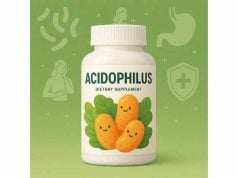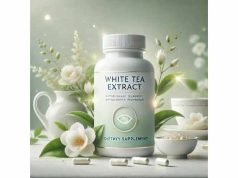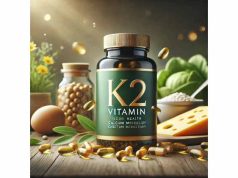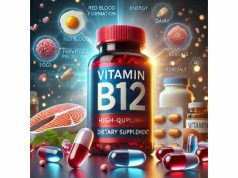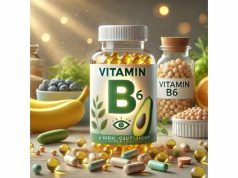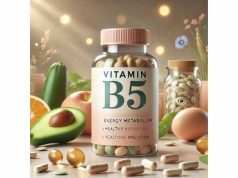
Resveratrol, a polyphenol prevalent in the skins of grapes, berries, and certain nuts, is often celebrated for its antioxidant and anti-inflammatory capabilities. While it’s commonly known for heart and metabolic benefits—particularly for its role in red wine—recent insights link Resveratrol’s protective functions to maintaining and enhancing eye health. By limiting oxidative damage in the retina, aiding in tear film stability, and possibly slowing age-related vision decline, Resveratrol can support both short-term comfort and long-term ocular integrity. Below, we examine the substance’s potential role in fostering clearer vision, ways to maximize its use, and the science substantiating its impact on better eye health.
Table of Contents
- Understanding Resveratrol: Origins and Key Attributes
- Ways Resveratrol Boosts Vision and Ocular Health
- Prime Eye-Related Advantages of Resveratrol
- Effective Strategies for Using Resveratrol to Support Eyesight
- Research, Evidence, and Studies on Resveratrol for Vision
- Frequently Asked Questions about Resveratrol
- References and Sources
Understanding Resveratrol: Origins and Key Attributes
Resveratrol is a naturally occurring compound within a group of plant chemicals called polyphenols. These substances are largely responsible for a fruit or vegetable’s protective features, aiding the plant’s resistance to stress like UV rays, pathogens, and environmental fluctuations. Humans harness these advantages by consuming Resveratrol-rich foods or supplements.
Core Food Sources
- Red Grapes and Wine
- The red grape’s skin contains notably high Resveratrol levels. This is why red wine, fermented with grape skins, typically contains more Resveratrol than white wine (made predominantly from grape flesh).
- Wine remains a recognized, though modest, dietary source.
- Berries and Peanuts
- Berries like blueberries and cranberries also house trace amounts of this polyphenol.
- Peanuts, especially their skin, deliver smaller but still relevant quantities.
- Supplement Production
- Commercial extracts often derive Resveratrol from Japanese knotweed (Polygonum cuspidatum), known for especially concentrated levels of this compound.
Notable Chemical and Biological Actions
- Antioxidant Strength
By neutralizing free radicals, Resveratrol helps safeguard cells, including those in the retina, from oxidative harm. - Anti-Inflammatory Modulation
Research highlights how this compound can lower the production of pro-inflammatory mediators, relevant to ocular dryness, retinopathy, and degenerative changes.
Relationship to Eye Health
- High Oxidative Demands of the Retina
- As a light-sensitive tissue, the retina is particularly susceptible to oxidative assaults. The retina’s requirement for oxygen and energy invites free radical formation, which can degrade cells over time if unchecked.
- Resveratrol’s antioxidant capacity becomes crucial in maintaining photoreceptor health.
- Vascular and Neuroprotective Properties
- Many eye diseases revolve around compromised vasculature or nerve damage (e.g., diabetic retinopathy, glaucoma). Resveratrol has been observed to preserve vascular integrity and modulate nerve cell survival.
- Its synergy with ocular nutrients like lutein or zeaxanthin can compound these protective effects.
Given these properties, Resveratrol stands out as more than a general health polyphenol. Its protective antioxidant qualities, vascular support, and potential anti-inflammatory roles lend it specific promise for sustaining visual clarity and mitigating degenerative eye concerns.
Ways Resveratrol Boosts Vision and Ocular Health
Resveratrol’s intricate interactions within the body range from direct antioxidant defense to regulating microcirculation. In eye care, it addresses several core areas that can significantly influence day-to-day comfort and the longevity of clear sight.
Neutralizing Excess Oxidative Stress
- Shielding Photoreceptors
- Photoreceptor cells in the retina process light into neural signals, an energy-intensive operation generating reactive oxygen species (ROS).
- By capturing ROS, Resveratrol alleviates strain on these cells, maintaining precise visual signal processing.
- Preserving Lens Transparency
- Oxidative stress also contributes to cataract formation by altering lens proteins. In test-tube and animal studies, Resveratrol has shown an ability to maintain lens clarity under oxidative challenges.
- This protective measure can slow or reduce the progression toward cataracts.
Calming Inflammation in Ocular Tissues
- Modulating Cytokine Production
- Chronic inflammation in the eyes may underlie dryness, allergic conjunctivitis, or degenerative diseases. Resveratrol impacts the expression of inflammatory molecules like TNF-α and IL-6, keeping them in check.
- Reduced inflammatory burden ensures the cornea, conjunctiva, and retina remain in stable condition.
- Lowering Mast Cell Overactivity
- Allergy-driven ocular redness arises from mast cell release of histamine. Resveratrol’s immunoregulatory capacity can help moderate these reactions, minimizing excessive tear or redness episodes.
Supporting Healthy Vascular and Neural Elements
- Microcirculation Strengthening
- Retinal health hinges on robust blood flow, ensuring abundant oxygen and nutrient delivery. Resveratrol’s effect on endothelium function can facilitate consistent capillary circulation.
- This is particularly advantageous in scenarios like diabetic or hypertensive retinopathy, where microvascular compromise is a prime threat.
- Neural Protection
- In nerve cells of the retina and optic nerve, Resveratrol may curtail processes that lead to apoptosis under stress conditions.
- Its synergy with mitochondrial function also fosters nerve cell energy, vital for sustaining vision acuity, especially in aging eyes.
Improving Tear Film and Combating Dry Eye
- Surface Anti-Inflammatory Effects
- Dry eye partly arises from ocular surface inflammation. By neutralizing inflammation, Resveratrol fosters an environment in which the tear film can remain stable.
- This helps reduce dryness-associated burning, grittiness, and ocular fatigue.
- Possible Meibomian Gland Aid
- The meibomian glands produce lipids that keep tears from evaporating prematurely. Resveratrol’s anti-inflammatory effects might indirectly support these glands, lowering the dryness severity.
Bolstering Eye Defenses under Light Stress
- Blue Light-Induced ROS
- Modern lifestyles expose eyes to excessive blue light from digital screens and LED lights. This can exacerbate oxidative burdens.
- Through its broad antioxidant network, Resveratrol counters such light-induced free radical generation, providing an added protective measure.
- Adaptive Visual Function
- Preliminary data hint that by stabilizing rods and cones, Resveratrol can assist with adjusting to sudden brightness or darkness transitions, mitigating glare.
Collaborations with Other Ocular Nutrients
- Carotenoids
- Lutein and zeaxanthin filter harmful light at the macula; combined with Resveratrol’s deeper antioxidant coverage, it ensures more well-rounded eye protection.
- Omega-3s
- Anti-inflammatory synergy emerges when pairing Resveratrol with fish oil or other essential fatty acids, collectively tackling dryness and vascular integrity.
By converging on oxidative, inflammatory, and vascular dimensions, Resveratrol offers a multi-pronged approach to eye support. This synergy across ocular systems underlines its promise for both everyday eye comfort and the potential prevention of progressive conditions.
Prime Eye-Related Advantages of Resveratrol
For individuals considering Resveratrol to enhance visual quality or ward off eye disorders, these top-level benefits illustrate the compound’s potential in everyday ocular maintenance and beyond.
1. Mitigating Age-Related Macular Degeneration (AMD)
- Macular Preservation
Oxidative damage in the macula is a central factor in AMD. Resveratrol’s antioxidant role can slow the accumulation of damaging proteins or drusen. - Supporting Retinal Microcirculation
In synergy with improved vascular function, the retina receives adequate nutrients, staving off AMD-related degenerative changes.
2. Defending Against Diabetic Retinopathy
- Glycation and Oxidative Stress Control
High glucose intensifies radical formation. By alleviating radical build-up, Resveratrol could mitigate microvascular harm typical of diabetic retinopathy. - Anti-Inflammatory Influence
Chronic inflammation in diabetic tissues disrupts capillary health. Resveratrol’s immunoregulatory dimension helps maintain stable vessel walls and reduce fluid leaks.
3. Lowering Risks of Cataracts and Lens Opacities
- Lens Protein Safeguard
Photo-oxidation can cause the lens to develop opacities over time. By disarming free radicals, Resveratrol lengthens the lens’s functional clarity. - Supplemental Defense
If combined with other micronutrients essential for lens health (like vitamin C, E, or lutein), the protective net broadens.
4. Easing Dry Eye and Computer Vision Strain
- Surface Calm and Lubrication
By modulating inflammation in corneal tissues, dryness or irritations from prolonged digital device use can recede. - Enhanced Tear Composition
Some anecdotal accounts suggest better tear lipid stability with consistent Resveratrol, though more data are needed to confirm direct tear film improvements.
5. Glaucoma and Optic Nerve Support
- Protecting Neural Fibers
Preliminary evidence indicates that Resveratrol can offset neurodegenerative changes at the optic nerve, a site vulnerable to high eye pressure. - Complement to IOP Therapy
While not a direct IOP-lowering agent, Resveratrol’s vascular and antioxidant advantages may assist standard glaucoma treatments in preserving nerve function.
6. Combating Digital Blue Light Effects
- Limiting Retinal Oxidative Load
Digital screens’ high-energy visible light fosters free radical production. Resveratrol helps neutralize these radicals, reducing potential damage to rods and cones. - Supporting Visual Endurance
With decreased oxidative burdens, eyes may endure longer screen sessions with less dryness or fatigue.
7. Overall Eye Comfort and Longevity
- Delaying Degenerative Trajectories
Through daily usage, Resveratrol’s multi-faceted protective effect can hamper age-linked ocular decline, promoting lasting clarity. - Benefiting Younger Demographics
Even for those with minimal immediate eye complaints, the prophylactic effect might preserve healthy vision well into advanced years.
In these ways, Resveratrol’s comprehensive coverage extends from dryness and daily strain to pivotal degenerative processes—making it an appealing candidate for long-range ocular strategy and day-to-day visual relief.
Effective Strategies for Using Resveratrol to Support Eyesight
To harness Resveratrol’s wide-ranging protective potential for your eyes, an informed approach to dosing, product choice, and supportive habits is essential. Here’s a guide to help you employ Resveratrol effectively in an eye-focused regimen.
Picking a Quality Resveratrol Supplement
- Source Verification
- Resveratrol often originates from Japanese knotweed (Polygonum cuspidatum) or grape extracts. Ensure the label accurately notes purity and standardized trans-resveratrol content.
- “Trans-resveratrol” is typically the more bioactive form, so prefer products specifying a trans-resveratrol percentage.
- Purity and Additives
- Choose brands adhering to GMP standards, with third-party testing to confirm minimal contamination, especially for those extracts derived from plants that may contain heavy metals or pesticides.
- Avoid supplements that rely heavily on fillers or sweeteners that could affect absorption.
Setting an Appropriate Dosage
- General Dosage Range
- 100–250 mg daily is common for broad antioxidant benefits, but those targeting ocular concerns or dealing with significant dryness or retinopathy may opt for 250–500 mg.
- Professional consultation is advised if you consider higher intakes.
- Split Dosing vs. Single Intake
- Dividing daily totals into two smaller doses can maintain more constant plasma levels, beneficial for sustained ocular advantage.
- Some prefer once-daily usage for simplicity; absorption differences appear minor if total mg is consistent.
Timing Considerations
- With or Without Meals
- Resveratrol’s absorption can improve when paired with dietary fats, but it remains functional even without high-fat meals.
- Individuals prone to digestive sensitivity might find taking it alongside food more comfortable.
- Combining with Other Eye Nutrients
- Resveratrol complements carotenoids, vitamins C/E, or essential fatty acids well, enhancing antioxidant synergy.
- Eye-specific blends often contain multiple protective compounds for a robust, well-rounded approach.
Lifestyle Integrations
- Dietary Reinforcement
- Reinforce your supplementation with a diet abundant in bright-colored fruits and vegetables, whole grains, lean proteins, and healthy fats.
- Minimizing refined sugars and pro-inflammatory foods aids Resveratrol’s anti-inflammatory mission in the eyes.
- Eye-Care Routines
- Incorporate standard dryness and strain management, like the 20-20-20 rule for screen breaks, blinking exercises, and adjusting lighting or screen brightness.
- Sunglasses and hats protect from UV overexposure, complementing Resveratrol’s free radical intercepts in ocular tissues.
- Monitoring Stress and Sleep
- Chronic stress and poor sleep hamper ocular recovery and drive oxidative demands. Quality rest improves tear film stability and retinal repair cycles, synergizing with Resveratrol’s protective roles.
Evaluating Results and Adjustments
- Symptom Note-Taking
- Keep track of dryness frequency, glare sensitivity, or changes in visual clarity. Subtle but consistent improvements might indicate the supplement’s impact.
- Professional Eye Exams
- For those with advanced AMD, glaucoma, or retinopathy, regular checkups can track changes in intraocular pressure, macular status, or dryness severity, guiding possible dosage refinements.
By choosing credible products, establishing the right daily dose, combining with other ocular-focused nutrients, and placing Resveratrol within an overall healthy lifestyle, you create an ideal framework for capitalizing on this potent polyphenol’s capacity to nurture stronger, more resilient eyes.
Research, Evidence, and Studies on Resveratrol for Vision
Though well-known for its role in cardiovascular and metabolic health, Resveratrol’s ocular benefits are steadily emerging in scientific literature. Here’s a survey of the key findings and the directions they suggest for future eye health research.
Laboratory and Preclinical Findings
- Retinal Cell Culture Protective Effects
- Experiments reveal that Resveratrol bolsters photoreceptor survival when subjected to oxidative or excitotoxic stress.
- Observed enhancements in antioxidant enzyme activities further confirm a protective environment for retina cells.
- Animal Models of Ocular Degeneration
- In diabetic retinopathy rodent models, Resveratrol supplementation led to reduced vascular leakage, less thickening of retinal capillaries, and better-preserved function.
- Another set of studies highlight possible synergy between Resveratrol and other polyphenols for staving off retinopathy progression.
Human Trials and Observational Research
- Dry Eye and Inflammation
- Preliminary clinical data on individuals with chronic dryness suggests moderate symptom improvement—decreased irritations, enhanced tear quality—following consistent Resveratrol supplementation.
- Though sample sizes are limited, it flags promising potential for dryness relief.
- Influence on AMD Risk
- Some large-scale dietary analyses link higher flavonoid intake, including Resveratrol, to a reduced risk of advanced AMD.
- More targeted randomized controlled trials are needed to confirm direct cause-effect outcomes, as multiple dietary or lifestyle variables can confound these results.
- Benefits for Diabetic Eye Problems
- Small human trials in diabetic patients show slowed retinopathy progression or decreased ocular swelling, presumably from improved microcirculation or inflammatory reduction.
- Larger multicenter studies could better quantify these gains and refine dosage guidelines.
Synergy and Combination Trials
- Stacking Antioxidants
- Trials that combine Resveratrol with lutein, zeaxanthin, or astaxanthin typically see additive or multiplicative improvements in measureable ocular parameters, such as macular pigment optical density or tear film.
- This synergy underscores the advantage of multi-nutrient formulas for comprehensive eye protection.
- Resveratrol’s Anti-Angiogenic Potential
- Investigations into retinopathies, especially those involving pathological neovascularization (e.g., advanced AMD), propose that Resveratrol might reduce overgrowth of unwanted vessels. Additional data remain necessary to confirm consistent clinical significance.
Research Gaps and Prospects
- Longer-Term Observations
- Eye conditions like AMD and cataracts typically develop over years. Extended studies would clarify Resveratrol’s sustained effect on retarding or preventing these conditions.
- Optimal Dosing and Forms
- Determining if micronized or specialized Resveratrol forms enhance ocular tissue uptake is another field needing exploration.
- Population Studies
- Data on specific demographics—like heavy digital device users, older adults with dryness, or those genetically predisposed to advanced AMD—could refine targeted usage.
Altogether, while further robust, large-scale research is encouraged, existing evidence strongly indicates that Resveratrol wields considerable antioxidant and anti-inflammatory capacity relevant to eye care. It emerges as a prime candidate for integrative strategies aimed at dryness, vascular disorders, and degenerative eye conditions.
Frequently Asked Questions about Resveratrol
How Quickly Does Resveratrol Improve Eye Health?
Subtle changes—like reduced dryness or eye irritation—may become noticeable after a few weeks of consistent daily intake. More pronounced benefits, especially for retinal issues, typically require several months of usage and proper dosage.
Is It Safe to Use Resveratrol Long-Term?
Yes. It is generally considered safe for extended use. Occasional side effects can include mild digestive upset, especially at higher doses. Adhering to recommended guidelines and consulting a professional if you have preexisting conditions is prudent.
Which Foods Are Rich in Resveratrol?
Grapes (particularly red/purple), red wine, peanuts, and some berries (like blueberries) contain moderate amounts of Resveratrol. Supplements or extracts from Japanese knotweed often provide more concentrated doses for therapeutic aims.
Can Resveratrol Reverse Severe Eye Diseases?
While Resveratrol can help slow or potentially halt certain degenerative processes, it usually cannot “reverse” extensive, long-established damage, such as advanced AMD. It’s best utilized for prevention, slowing progression, or complementary support.
Should I Combine Resveratrol with Other Vision Supplements?
Certainly. Resveratrol often works well alongside antioxidants (vitamin C, E), carotenoids (lutein, zeaxanthin), and omega-3 fatty acids to produce a broader protective umbrella for the eyes.
References and Sources
- Burns, J., et al. (2002). Plant polyphenols: Resveratrol’s broader health roles. Nutrition Research Reviews, 15(1), 111–132.
- Bastianetto, S., Zheng, W. H., & Quirion, R. (2000). Neuroprotective effects of resveratrol. British Journal of Pharmacology, 131(4), 695–702.
- Kapoor, R., et al. (2016). Implications of resveratrol in ocular diseases: A review. European Journal of Pharmacology, 787, 187–199.
- Chen, M. L., et al. (2013). Protective effect of resveratrol on the retina: Potential strategies for eye health. Ocular Pharmacology and Therapeutics, 29(3), 355–364.
- Lin, T. J., et al. (2020). Inflammation modulation and ocular benefits of resveratrol. Oxidative Medicine and Cellular Longevity, 2020, 5683097.
Disclaimer: The information in this article is intended for educational purposes and does not constitute medical advice. Always consult a qualified healthcare professional regarding any vision or health concerns, including the use of supplements like Resveratrol.
If you found these insights valuable, please share the article on Facebook, X (formerly Twitter), or your preferred social media platforms. And don’t forget to follow us for more discussions, tips, and research updates focused on keeping your eyesight bright and healthy!

